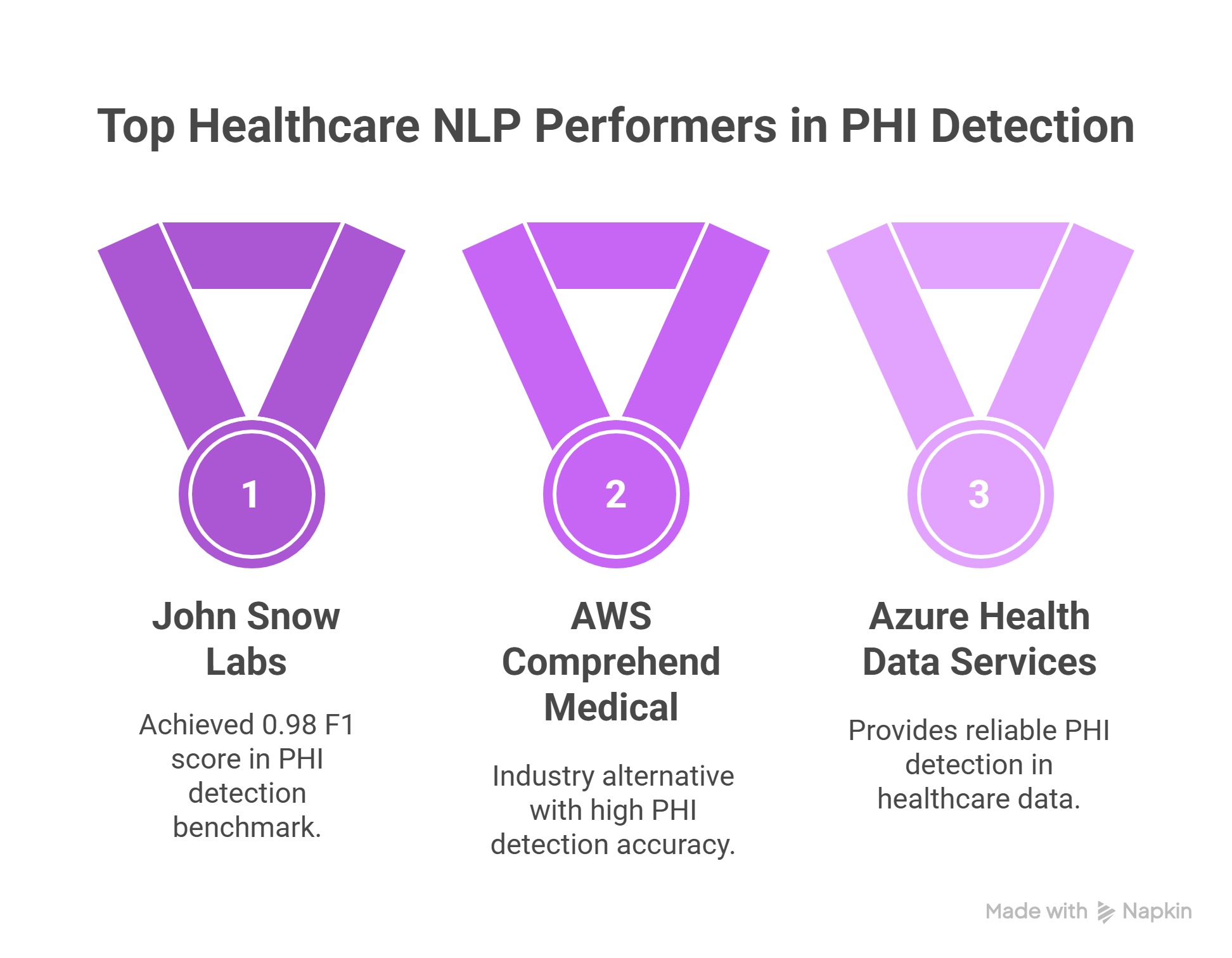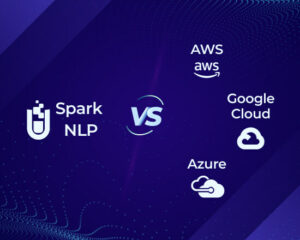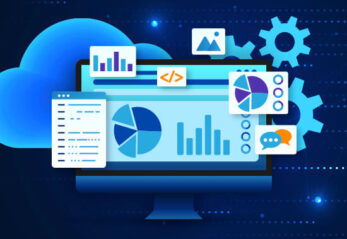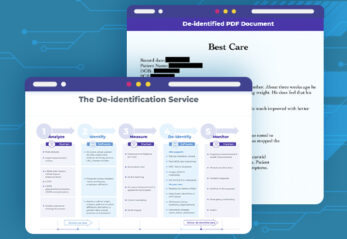What does “regulatory-grade de-identification” mean in healthcare?
Regulatory-grade de-identification refers to a comprehensive approach that transforms or removes Protected Health Information (PHI) to meet the highest standards of privacy laws, such as HIPAA in the United States and GDPR in Europe. Unlike basic redaction or simple masking, this method ensures compliance without compromising data utility.
This advanced process supports referential integrity, maintains the structure and semantics of original data, and works consistently across different formats. For example, a date of birth, address, or patient ID must be altered in a way that removes personal identifiers while keeping the record clinically useful. This allows organizations to conduct research, train AI models, and derive insights from real-world evidence, all while maintaining strict compliance.
Why is longitudinal authentication essential for medical datasets?
In healthcare, data rarely lives in a single snapshot. Patients interact with healthcare providers over time, across locations, and through various systems. Longitudinal authentication ensures that each patient’s de-identified records can still be linked together accurately, without re-identifying the person.
This is vital for patient tracking, epidemiological research, and outcome-based analytics. For instance, if a patient’s name is obfuscated as “Anne Boleyn” in one dataset, that same alias must be used consistently across all future documents, whether they are clinical notes, radiology reports, or billing claims. Such consistency allows researchers to follow disease progression, treatment effectiveness, and more, while maintaining full compliance.
How does John Snow Labs achieve regulatory-grade de-identification?
John Snow Labs utilizes a sophisticated de-identification pipeline built on Healthcare NLP. This pipeline integrates Named Entity Recognition, Named Entity Linking, and context-aware obfuscation methods. It also complies with HIPAA Safe Harbor and Expert Determination provisions, as well as GDPR anonymization requirements.
The system ensures PHI elements are not just removed but replaced with synthetic, realistic values that are gender-matched, temporally consistent, and semantically appropriate. These elements maintain clinical context, enabling accurate downstream processing for AI and analytics workflows.
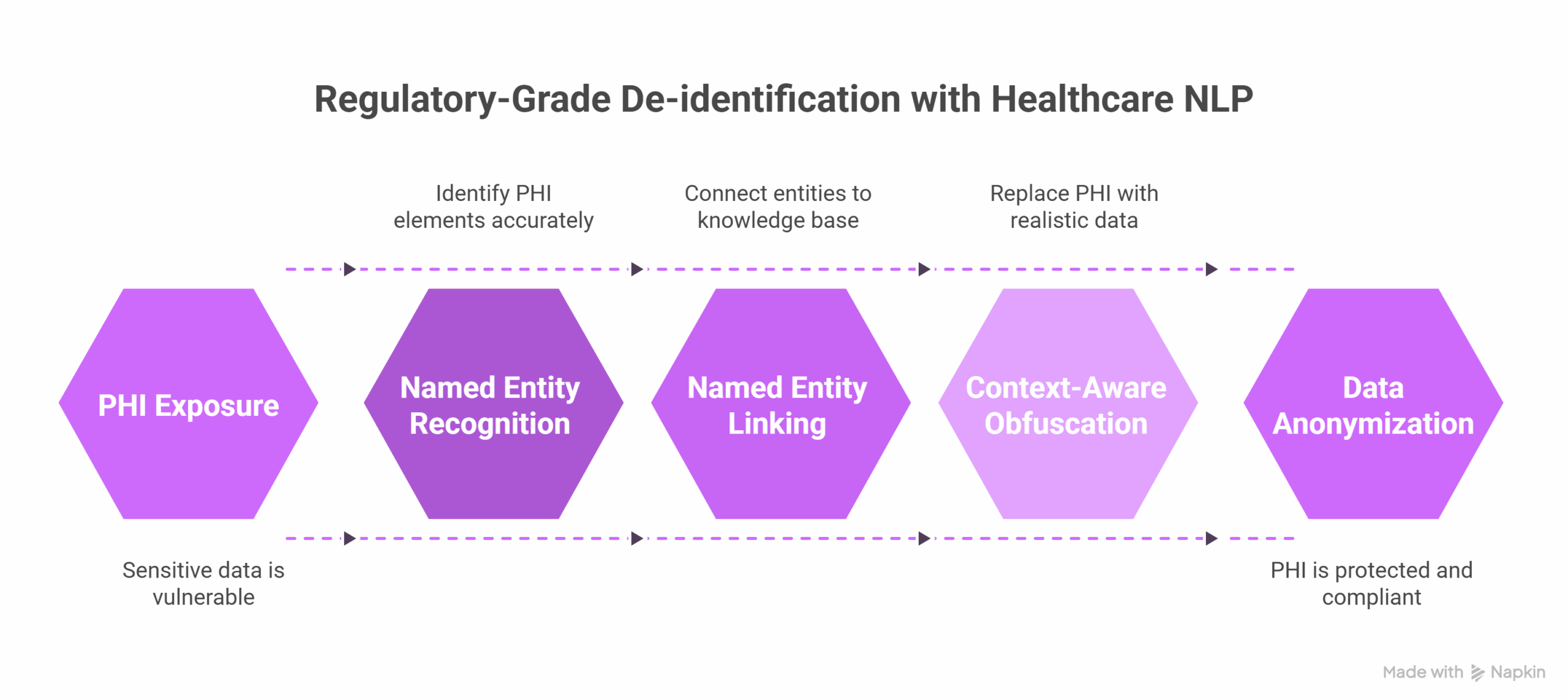
What performance advantages does John Snow Labs offer?
In a recent peer-reviewed benchmark, John Snow Labs’ Healthcare NLP pipeline achieved a 0.98 F1 score in PHI detection, outperforming industry alternatives such as AWS Comprehend Medical, Azure Health Data Services, OpenAI GPT-4.5, and Claude Sonnet 3.7.
These results reflect not only technical superiority but also the system’s scalability, traceability, and reliability across various deployment environments.
Who shared these insights and how can I learn more?
These insights were presented by Dr. Youssef Mellah, Senior Data Scientist and Machine Learning Engineer at John Snow Labs. With over eight years of experience in AI and clinical NLP, Dr. Mellah delivered a detailed and practical walkthrough during a recent webinar. He showcased live demos, performance metrics, and regulatory frameworks to guide healthcare teams through privacy-preserving AI implementations.
Watch the full webinar recording here
FAQs
What makes de-identification “regulatory-grade”?
It ensures compliance with HIPAA and GDPR by supporting consistent obfuscation, longitudinal linking, multimodal formats, and auditability. It protects privacy while preserving data usability for AI and research.
Is regulatory-grade de-identification suitable for real-world evidence studies?
Yes. Because it preserves referential integrity across time and data types, it enables longitudinal research without re-identification risks.
How does regulatory-grade de-identification improve compliance workflows?
It integrates logging, traceability, and audit-readiness features that make it easier to pass internal and external reviews, aligning with both HIPAA and GDPR requirements.
Can the system handle sensitive data from scanned images and PDFs?
Yes. John Snow Labs supports OCR for scanned documents and metadata parsing for formats like DICOM and non-selectable PDFs.
How does it help healthcare AI teams?
It enables training data preparation that is privacy-compliant and legally shareable, accelerating model development and deployment.
Supplementary Q&A
Can regulatory-grade de-identification be deployed on-premise?
Yes. John Snow Labs supports flexible deployments including on-premise, hybrid, and private cloud setups. This allows healthcare organizations with strict data governance policies to maintain full control over sensitive data while still leveraging high-performance NLP pipelines.
How does this compare to manual annotation by clinical staff?
Regulatory-grade de-identification powered by NLP surpasses human annotation in both speed and accuracy. Benchmarking studies show that the system not only detects more PHI entities but also maintains higher consistency across records, which is critical for longitudinal analysis.
























